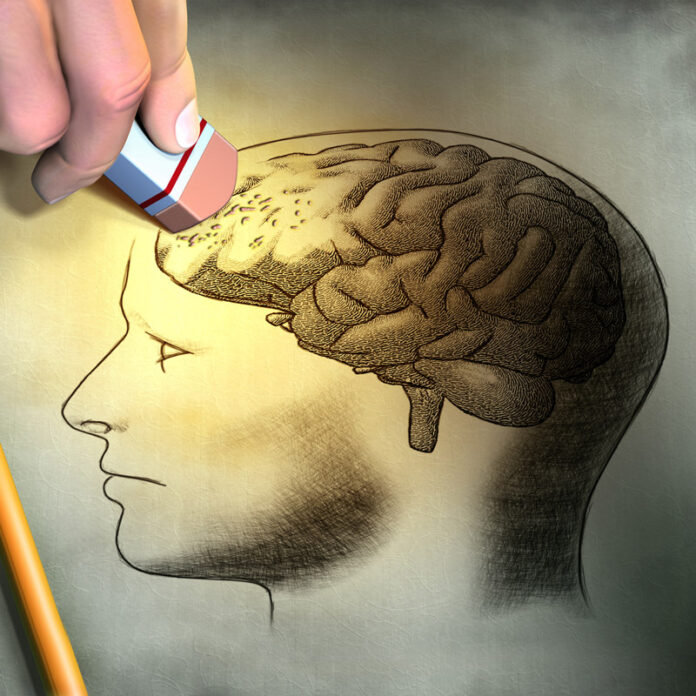A husband suffered from memory loss (amnesia) caused by afternoon sex with his wife, according to a new paper by medics.
The report, released in the May edition of the Irish Medical Journal, detailed how the 66-year-old man experienced Transient Global Amnesia (TGA) within 10 minutes of sexual intercourse.
Medics at the Department of Neurology at University Hospital Limerick said that the case showed that sex could trigger TGA.
The document, called ‘Recurrent Postcoital Transient Amnesia Associated with Diffusion Restriction’, described how he went to A&E and a similar incident occurred seven years prior involving the same man.
It stated that: ‘On the afternoon of presentation, he had engaged in sexual intercourse 10 minutes before the onset of memory disturbance.
‘After seeing the date on his phone, he became distressed that he had forgotten his wedding anniversary the day before.
‘He had, in fact, celebrated his wedding anniversary with his wife and family on the previous day.
‘His autobiographical memory remained intact, but he had no memory of that morning or the celebrations the night before.’
The paper continued: ‘The man repetitively questioned his wife and daughter over the events of that morning and the previous day.
READ ALSO: Terrorists kill three Niger PDP delegates
‘No other neurological symptoms were reported and upon arrival to the emergency department his neurological examination was completely normal.’
TGA’s cause is unknown, however, there is a link between sudden memory loss and a history of migraines.
Overfilling of the veins due to a blood blockage or another abnormality with blood flow may also be to blame.
In rare cases, TGA has been reported to be triggered by sudden immersion in cold or hot water, strenuous exercise and sex.
TGA is more common in people over 50.
WHAT IS TRANSIENT GLOBAL AMNESIA?
Transient global amnesia (TGA) is defined as sudden, temporary memory loss that cannot be attributed to a common neurological condition, like a stroke or epilepsy.
TGA affects around five in every 100,000 people each year.
During an episode, sufferers cannot recall recent events, such as where they are or how they got there.
They may also draw a blank when asked about what happened a week, month or even a year ago.
Sufferers also often do not recognise their loved ones.
Although distressing, TGA is not serious with most patients’ memories gradually returning.
TGA’s cause is unknown, however, there is a link between sudden memory loss and a history of migraines.
Overfilling of the veins due to a blood blockage or another abnormality with blood flow may also be to blame.
In rare cases, TGA has been reported to be triggered by:
Sudden immersion in cold or hot water
Strenuous exercise
Sex
Medical procedures, such as an endoscopy
Mild head trauma
Emotional distress
TGA is more common in people over 50.
There is no treatment or known prevention.
MailOnline













